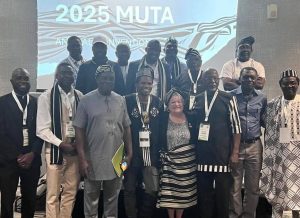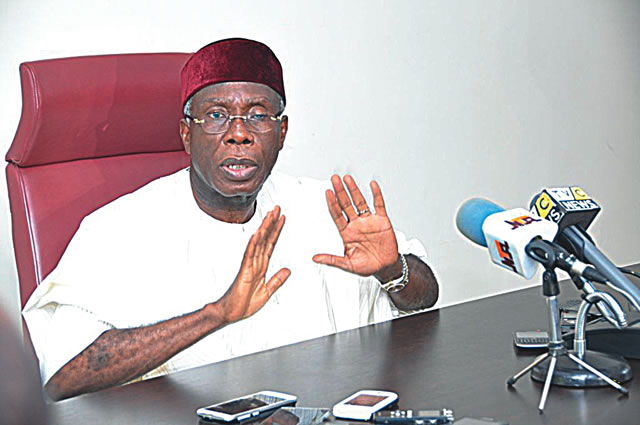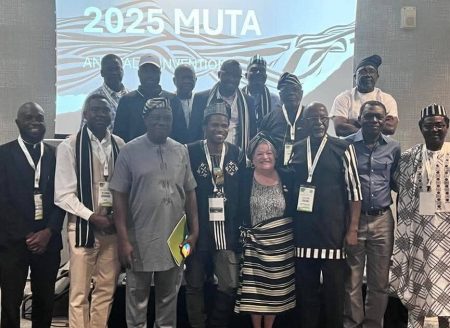Chief Audu Innocent Ogbeh, a prominent Nigerian political figure and agricultural advocate, passed away peacefully on August 9, 2025, at the age of 78. His death sent ripples of shock and sorrow across the nation, particularly within the Arewa Consultative Forum (ACF), a prominent northern socio-cultural organization where he held key leadership positions. The ACF mourned the loss of a “nationalist and committed son of Arewa,” whose life exemplified unwavering dedication to public service and the betterment of Nigeria. Ogbeh’s contributions spanned various sectors, from politics and agriculture to cultural pursuits, leaving an enduring legacy that touched the lives of countless Nigerians. His journey, from humble beginnings in Benue State to the highest echelons of power, serves as a testament to his intellect, resilience, and unwavering commitment to his convictions.
Ogbeh’s educational foundation was laid at prestigious institutions, including St. Francis Primary School, King’s College Lagos, Ahmadu Bello University (ABU) Zaria, and the University of Toulouse, France. His academic prowess led him to a career in academia, lecturing in the humanities at ABU before heading the humanities department at Murtala College. This intellectual grounding shaped his approach to public service, informing his policy decisions and advocacy for national development. It also fueled his passion for lifelong learning and critical engagement with societal issues. His intellectual curiosity extended beyond his academic pursuits, as evidenced by his literary endeavors, including his play “The Epitaph of Simon Kisulu.”
Ogbeh’s entry into the political arena began in 1979 when he was elected Deputy Speaker of the Benue State House of Assembly. This marked the beginning of a long and distinguished career in public service, characterized by integrity and a commitment to the welfare of the Nigerian people. He subsequently served as Minister of Communications and later Minister of Steel Development during the Second Republic, demonstrating his versatility and ability to navigate complex portfolios. His political trajectory was however abruptly interrupted by the 1983 military coup, which forced him out of office. This setback did not deter his commitment to serving his nation; it merely redirected his energies towards other avenues of impact.
Ogbeh’s return to national prominence occurred in 2001 when he assumed the chairmanship of the Peoples Democratic Party (PDP), then the ruling party. Navigating the turbulent political landscape of the time, Ogbeh earned a reputation for his principled stance and unwavering commitment to democratic ideals. His decision to resign from the PDP chairmanship in 2005, following a clash with then-President Olusegun Obasanjo, further solidified his image as a man of integrity, unwilling to compromise his convictions for political expediency. His famous words, “You cannot stay in a party to witness its death,” encapsulated his unwavering commitment to principles over power.
Following his departure from partisan politics, Ogbeh dedicated his efforts to agricultural pursuits, establishing Efugo Farms in Makurdi, Benue State. His passion for agriculture extended beyond personal enterprise; it represented a deep-seated belief in the transformative potential of the sector for national development. He focused on producing a variety of crops, including rice, cashew, pineapples, and poultry, demonstrating his commitment to diversification and agricultural self-sufficiency. His practical experience and expertise in agriculture eventually led to his appointment as Minister of Agriculture and Rural Development in 2015 by President Muhammadu Buhari. In this role, he championed initiatives aimed at mechanizing farming practices, empowering rural youth, and revitalizing grazing reserves, contributing significantly to the growth of Nigeria’s agricultural sector, particularly in rice production.
Ogbeh’s legacy extends beyond his political and agricultural achievements. He was a vocal advocate for national unity and a staunch believer in the potential of Nigeria to achieve greatness. His contributions to the Arewa Consultative Forum, including his role in planning its 25th-anniversary celebrations, underscore his commitment to fostering dialogue and understanding across different regions and ethnic groups within Nigeria. His insightful pronouncements on national issues, such as his warnings about the economic and social consequences of food importation, reflected his deep understanding of the challenges facing the nation and his unwavering commitment to finding solutions. His passing represents a profound loss to Nigeria, leaving a void in the nation’s political and intellectual landscape. His life and work serve as an inspiration to future generations, a testament to the power of integrity, dedication, and unwavering belief in the potential of one’s nation.














